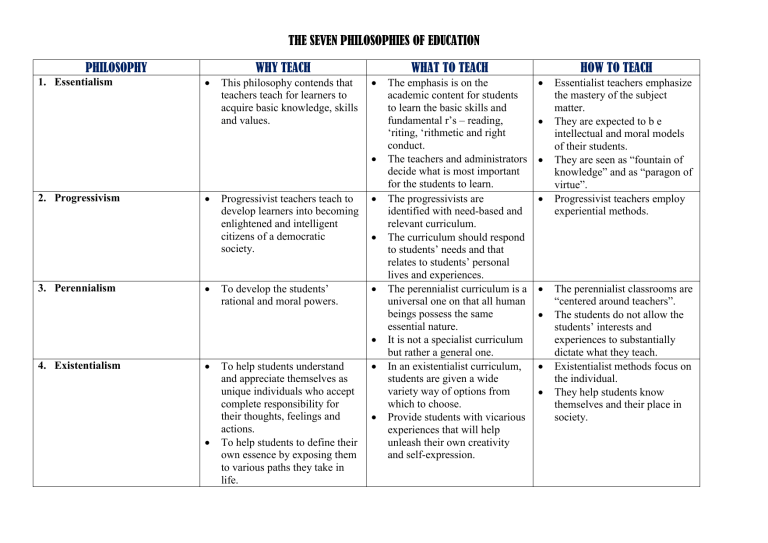What are the 5 approaches of education and learning? – Ever questioned what drives various instructional techniques? Various approaches underpin the methods we discover and educate. These directing concepts, like various lenses, form exactly how we watch understanding, the duty of the instructor, and the pupil’s trip. Checking out these approaches permits us to recognize the abundant tapestry of instructional idea.
These 5 core approaches of education and learning deal one-of-a-kind viewpoints on exactly how finest to support young minds and furnish them for the future. They vary from a concentrate on specific development to a much more organized, social method. Allow’s study each, identifying that the most effective method typically mixes components from numerous approaches, customized to certain contexts and students.
1. Perennialism: This viewpoint stresses basic facts and ageless concepts. Think about it as concentrating on the core topics, the withstanding concepts that have actually stood the examination of time. Perennialists think that trainees ought to learn more about the excellent thinkers and authors of the past, soaking up understanding that matters throughout generations. Envision an educational program abundant in literary works, viewpoint, and background, developed to gear up trainees with a solid intellectual structure.
- Key Concepts: Core topics, withstanding concepts, intellectual structure.
- Famous Entity Related: Plato, Aristotle, Socrates (Ancient Greek Philosophers)
2. Essentialism: This viewpoint builds on perennialism, yet with a concentrate on important abilities and understanding. Essentialists think that trainees require a strong understanding of basic ideas and abilities in core topics. The focus gets on understanding the fundamentals, offering a solid structure for future knowing. This method typically entails an organized educational program with clear knowing purposes.
- Key Concepts: Basic abilities, core topics, structured educational program.
- Famous Entity Related: William Bagley, (American Educator)
3. Progressivism: This viewpoint fixate the student’s experience. Progressivists think that discovering ought to be interesting and energetic, linking to the pupil’s real-world experiences. They stress crucial reasoning, analytic, and partnership. The class ends up being a location for expedition and exploration, where trainees are urged to ask inquiries and form their very own knowing.

- Key Concepts: Active knowing, crucial reasoning, analytic, student-centered knowing.
- Famous Entity Related: John Dewey (American Philosopher)
4. Existentialism: This viewpoint stresses specific flexibility and obligation. Existentialists think that trainees ought to specify their very own worths and significance in life. The emphasis gets on individual development and self-discovery, encouraging trainees to take and make options possession of their knowing. Envision a class where trainees are urged to discover their interests and create their one-of-a-kind viewpoints.
- Key Concepts: Individual flexibility, individual development, self-discovery.
- Famous Entity Related: Jean-Paul Sartre, Albert Camus (Existentialist Philosophers)
5. Social Reconstructionism: This viewpoint sights education and learning as a device for social modification. Social Reconstructionists think that colleges ought to attend to social issues and job in the direction of a much more simply and fair culture. The emphasis gets on encouraging trainees to end up being energetic individuals fit their areas and supporting for favorable social modification. This method typically integrates social activity tasks and neighborhood interaction.
- Key Concepts: Social modification, social justice, neighborhood interaction.
- Famous Entity Related: George Counts, (American Educator)
Understanding these approaches gives a structure for valuing the variety of techniques to education and learning and assists us make educated choices concerning the most effective methods to sustain students.
